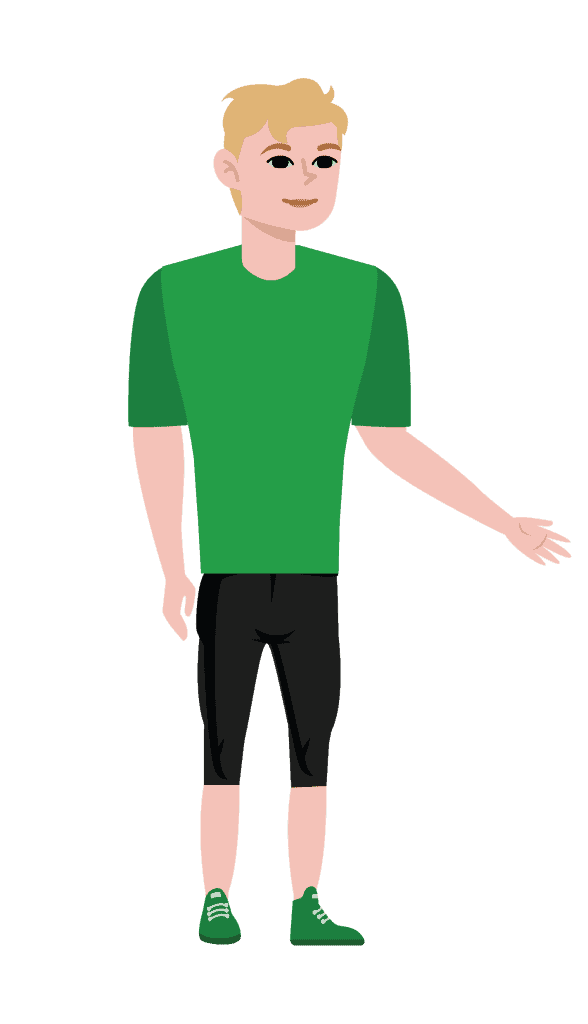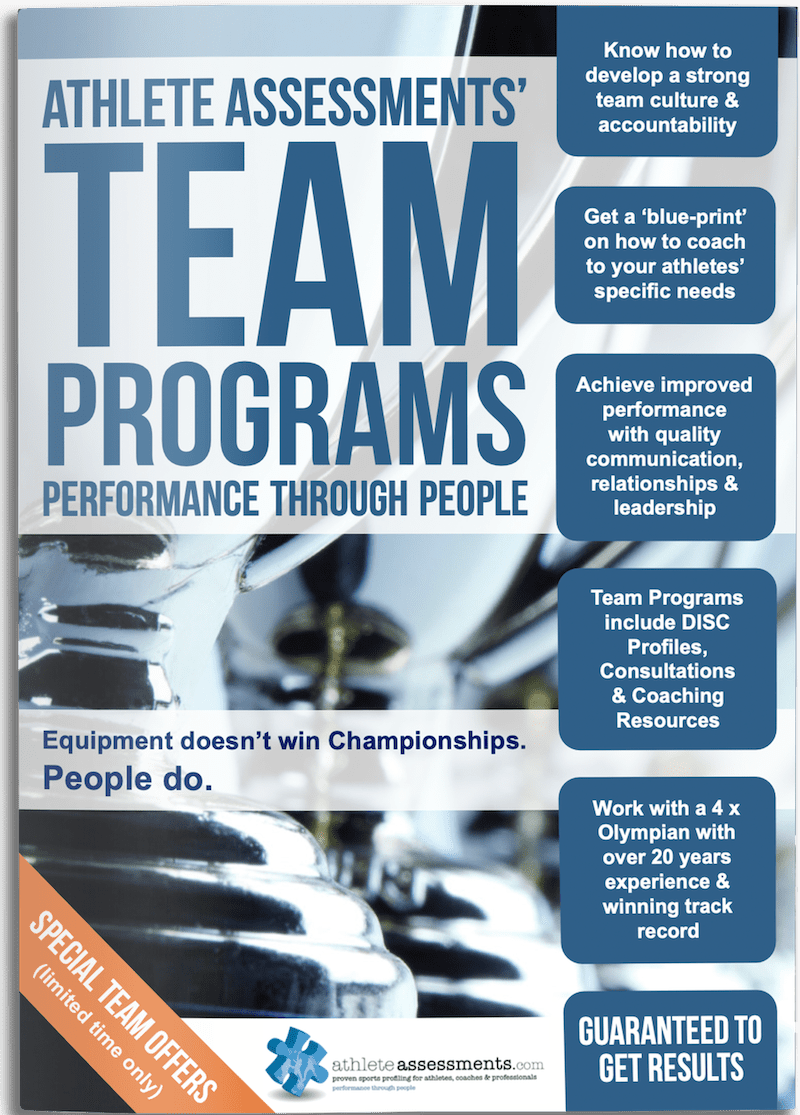The four different DISC sport coaching styles are discussed in the article Understanding and Using the Four Coaching Styles and this article is dedicated to the Steady Sport Coaching Style. Here is a summary of the Steady Sport Coaching Style (‘S Style’ Coach):
- A ‘S Style’ Coach uses two-way communication, listens well, asks their athletes lots of questions. Rather than providing direct instructions, the S coach encourages athletes to take an active role in their development. They guide their athletes technically, while providing emotional support.
- The athlete requires high technical instruction AND has relationship/motivational needs.
- S Style coaching works well with athletes with some level of technical skills who may need emotional support for any set-backs they may face in the everyday progress of their sport.
- Examples of situations when the S Style of coaching is appropriate are when more collaboration is needed, when there is more time and no urgency, in times of developing teamwork, for one-on-one interactions or when a sense of security and acceptance is needed.

Using the Steady Style involves guiding an athlete technically and providing emotional support. Coaches will try to encourage their athlete to take a more active role in their own learning. Steady Style can be considered a ‘sharing’ style of coaching. It involves more two way communication than the directing of the Dominant Style and coaches try to allow their athletes to evaluate their own performance and provide a more consultative approach to the athlete’s development.

WHO TO USE THE STEADY STYLE WITH
The Steady Style works best for athletes who have some level of skill but may not be as enthusiastic as raw beginners. Instead, they have likely learnt the realities of the ups and downs of sport and the impact this has on their emotions, hence why these athletes require a more relationship focused approach from the coach. Essentially coaches using this style need to guide athletes on both a technical and emotional front.
The two-way open communication used in this style also keeps your athletes engaged. Keep the communication open by asking questions and being patient for their ideas and suggestions about the skills they are developing. For example:
“This is what we are doing today, what approach do you feel is going to give you the best result?” “How did that feel and what did you notice about what worked well and what you can do better?” “How are you feeling?”
S STYLE COACHES - WATCH OUT FOR...
As these athletes do not have a beginner’s enthusiasm to support themselves emotionally, they will rely on you as a coach to keep their level of engagement up. Asking for the athletes input helps to keep them engaged in what they are learning. When athletes are more engaged, they provide the discretionary effort which makes all the difference to performance.
If you try to become too Directive with an athlete of some skill level, they may decide to opt out because they feel their needs are not being met.
Where to from here?
The CoachDISC is the only sport specific tool available for identifying what your preferred coaching style is. Without this tool, one can learn about their style from the observation of experienced coaches or by video taping your coaching and looking for evidence of your preferred communication and coaching style.
Once you are aware of your sport coaching style, it becomes easier for you to add into your coaching practice the aspects that your natural coaching style may lack but your athletes still require.
Continue to read more on this topic by:
- Return to Understanding and Using the Four Coaching Styles
- Read more about the Dominant Sport Coaching Style
- Read more about the Influencing Sport Coaching Style
- Read more about the Conscientious Sport Coaching Style
At Athlete Assessments, we’re here to provide you with excellence in service and here to help you be your best. If there is anything we can assist you with, please contact us.






